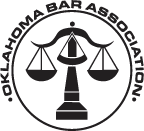The United States Supreme Court recently issued a landmark ruling expanding employment protection to the LGBTQ+ community under Title VII of the Civil Rights Act of 1964 in Bostock v. Clayton County, Georgia. The Supreme Court explicitly ruled that an employer who discriminates against or discharges an employee based on an employee’s homosexuality or gender identity violates Title VII by discriminating against the employee “because of such [employee’s] sex.” See 42 U.S.C. § 2000e-2(a)(1).
For many years, homosexual and transgender individuals were not protected under Title VII. In the last three years, a “circuit-split” developed amongst three U.S. Circuit Courts as to whether discrimination against homosexual or transgender individuals constituted discrimination “because of such individual[s’] . . . sex.” For the first time two of the Circuit Courts found that that sexual orientation was covered under the Act’s prohibition on discrimination based on sex while a third Circuit ruled that Title VII did not extend to homosexuality or gender identification. In a 6-3 decision authored by Justice Neil Gorsuch, the Supreme Court resolved the circuit split, finding “[a]n employer who fires an individual merely for being gay or transgender violates Title VII.”
In Bostock, the Supreme Court considered “whether an employer can fire someone simply for being homosexual or transgender.” The Supreme Court unequivocally stated that “an employer who fires an individual for being homosexual or transgender” violates Title VII of the Civil Rights Act of 1964 by taking discriminatory action based upon the employee’s sex. The Supreme Court held that if “sex plays a necessary and undisguisable role in the decision” to terminate the individual’s employment, Title VII prohibits employers from discriminating against homosexual or transgender employees.
The Bostock decision addressed this issue in three cases consolidated for consideration by the Court. In the first case, Clayton County, Georgia fired Gerald Bostock after Mr. Bostock began participating in a gay recreational softball league, despite Mr. Bostock’s nationally recognized work in the county’s child welfare advocacy department. In the second case, a skydiving business fired Donald Zarda after several productive seasons with the business when Mr. Zarda mentioned that he was gay. In the third case, a funeral home fired Aimee Stephens after she notified the funeral home that she planned to “live and work full-time as a woman.” In all three cases, the employer fired the employees because of the employees’ homosexuality or gender identity.
Title VII makes it unlawful “for an employer to fail or refuse to hire or to discharge any individual, or otherwise to discriminate against any individual with respect to his compensation, terms, conditions, or privileges of employment, because of such individual’s race, color, religion, sex, or national origin.” 42 U.S.C. § 2000e-2(a)(1). The Bostock decision depended entirely on whether firing an employee for being a homosexual or transgender individual constitutes discrimination “because of such individual’s . . . sex” within the meaning of Section 2000e-2(a)(1) of Title VII.
In Bostock, the Supreme Court clearly emphasized the two key points underlying its decision. First, “an individual’s homosexuality or transgender status is not relevant to employment decisions.” Second, “it is impossible to discriminate against a person for being homosexual or transgender without discriminating against that individual based on sex.” The Court provided the following illustrative examples demonstrating its conclusion:
Consider, for example, an employer with two employees, both of whom are attracted to men. The two individuals are, to the employer’s mind, materially identical in all respects, except that one is a man and the other a woman. If the employer fires the male employee for no reason other than the fact that he is attracted to men, the employer discriminates against him for traits or actions it tolerates in his female colleague.
* * *
Or take an employer who fires a transgender person who was identified as a male at birth but who now identifies as a female. If the employer retains an otherwise identical employee who was identified as female at birth, the employer intentionally penalizes a person identified as male at birth for traits or actions that it tolerates in an employee identified as female at birth. Again, the individual employee’s sex plays an unmistakable and impermissible role in the discharge decision.
The Supreme Court’s mandate in Bostock is clear: an employer violates Title VII if the employer discriminates against or fires an individual for being homosexual or for being transgender. Employment decisions based on an individual’s sexuality or gender identity necessarily require that such decision are based on sex when an employer fires a person for traits or actions that the employer would not have questioned in members of a different sex. In short, when making employment decisions based upon an employee’s homosexuality or gender identification, the employer violates Title VII prohibitions. The case is particularly notable given that it was written by Justice Gorsuch, a noted conservative.
Bostock indisputably expanded Title VII workplace discrimination protections to the LGBTQ+ community, the Bostock opinion suggested that such protections to homosexual or transgender individuals may be limited if private sector employers maintain that employing members of the LGBTQ+ community violates the free exercise of religion. The Supreme Court called the Religious Freedoms Restoration Act (“RFRA”), 42 U.S.C. § 2000bb et seq., a “kind of super statute” that “might supersede Title VII’s commands in appropriate cases.” Despite noting the potential conflict between Title VII and the RFRA, the Supreme Court issued no ruling on the subject as the issue was not before the Court.
For questions or more information about Title VII or the RFRA, please contact Chuck Dunlay or any member of our Employment Law Practice Group.
Disclaimer and warning: This information was published by McAnany, Van Cleave & Phillips, P.A., and is to be used only for general informational purposes and should not be construed as legal advice or legal opinion on any specific facts or circumstances. This is not inclusive of all exceptions and requirements which may apply to any individual claim. It is imperative to promptly obtain legal advice to determine the rights, obligations and options of a specific situation.







